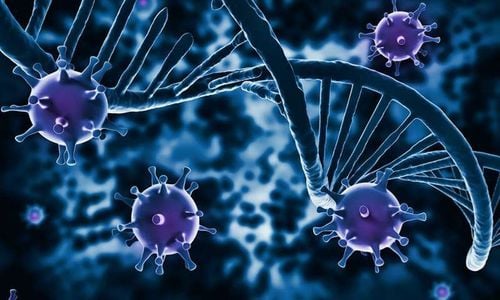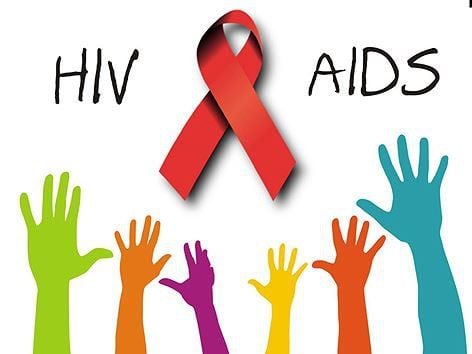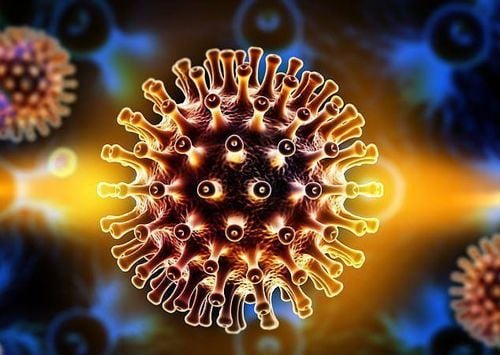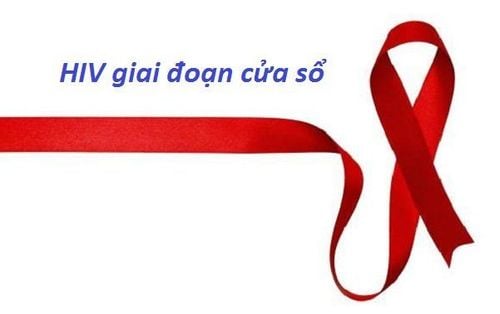This is an automatically translated article.
In any stage, HIV can be contagious if you do not detect it early and prevent it in time. So what is the window period of HIV infection and what can be done to prevent HIV infection?1. What is HIV?
HIV is a lentivirus capable of causing acquired immunodeficiency syndrome (AIDS). HIV is caused by human immunodeficiency virus. When these viruses enter the body, they attack the immune system and destroy white blood cells (called lymphocytes). There are 2 different types of HIV:
HIV-1 is the most common type found worldwide; HIV-2 is found mainly in West Africa. People who are infected with HIV are called HIV-positive (HIV+). However, there is still a chance that you will get a negative result if you take a blood test too soon, even though you are already infected with HIV.
After a long period of HIV infection, the disease will develop into AIDS - the final stage of the disease.
2. Stages of HIV
HIV usually goes through 4 stages of disease with different manifestations. Includes:
Primary infection - window stage This is the first stage of HIV, and its symptoms are often confused with other infectious diseases. There are many people who do not have any symptoms, there are also some cases in the first 1-2 months with flu-like symptoms, including high fever over 38 degrees, sore throat, fatigue, swollen lymph nodes, fatigue, weight loss, sweating.
These early symptoms of HIV appear because the immune system is responding to the invasion of the HIV virus. This stage usually lasts up to 10 years, or even more, depending on the individual's condition. It takes about 2-3 months after infection for an accurate HIV positive test result.
Asymptomatic stage of infection In this stage, the disease does not show any outward symptoms. This makes it difficult for the patient as well as those around him to recognize it if only through normal observation. During this stage, the patient feels completely healthy and the white blood cell count in the blood has not decreased much. However, this is also the time when HIV viruses develop strongly and gradually turn into a chronic stage.
The stage of near AIDS The body has not had many obvious changes during this time, however, it has begun to weaken gradually. People infected with HIV will also be more susceptible to diseases such as sinusitis, pharyngitis, tonsillitis, recurrent stomatitis, rashes, rashes, nail fungus,... In addition, there may be some other manifestations such as: weight loss, night sweats, diarrhea and persistent fever.
AIDS Stage This is the final stage of the disease. At this time, the patient's resistance and immunity are destroyed and severely weakened, no longer able to fight pathogens, which can easily lead to death. Some common diseases that patients are susceptible to include skin sores, diarrhea, cough... Especially opportunistic infections are the main cause of death for patients. This phase lasts no more than 2 years.

Giai đoạn AIDS
3. Is HIV during the window period contagious?
During the window period that includes another period known as “seroconversion”. After a person gets HIV, their immune system begins to develop HIV antibodies. Seroconversion is the time period during which these antibodies were first detected.
The time interval between the first HIV infection and the development of antibodies can vary because everyone's immune systems are different. It may also depend on the type of HIV test done. Patients usually detect the development of antibodies within 3-12 weeks of HIV infection.
Most HIV tests are done to check for the presence of HIV antibodies. So if you are infected with the virus, get tested before the seroconversion phase begins.
HIV in the window period can completely infect others. Because in the time between infection and seroconversion, most people don't know they have HIV. Although there may not be any symptoms, the virus is growing stronger and multiplying in large numbers, gradually destroying the natural immune system of the patient. When the test is performed at this stage, it is difficult to detect the virus in the body, the result will often be a false negative.
If you feel you are at risk of getting HIV and think you are in the "window" period, you should get tested again to confirm your HIV status. This not only helps in early detection and treatment of patients, but also helps prevent the transmission of the disease to others.
4. How is HIV transmitted?
Mostly, HIV is usually transmitted through 3 main ways:
Through blood: HIV is mainly transmitted through blood. When receiving blood directly from an infected blood donor, there is a very high probability of infection.
When injecting drugs and sharing needles with other people are also susceptible to disease.
Sexual intercourse: Anal and vaginal sex activities carry a high risk of HIV transmission, especially when protection is not used during sex, such as a condom. su.
Other situations that can also cause HIV transmission during sex include:
Sex with different people; Having unprotected sex with someone who has HIV; Having sex with someone who has sex with many other people. Mother-to-child transmission: Pregnant women infected with HIV can pass the infection on to their babies. Even if the mother is infected with HIV during labor, delivery or breastfeeding, the baby is very susceptible to infection. HIV can be transmitted through breast milk, so to prevent the baby from getting sick, an HIV-infected mother should not breastfeed her baby directly.
5. HIV is not transmitted through what activities?
You cannot get HIV through the following activities:
Eating with someone who has HIV; Shake hands, hug, kiss; Sneezing and coughing; Mosquito bites or insect bites.

Ăn chung với người bị HIV
6. Measures to prevent HIV infection
If family and friends are diagnosed with HIV, you should learn the precautions to prevent HIV infection and protect yourself and those around you. Here are some effective ways to help prevent HIV infection:
Learn more about HIV transmission routes; Avoid alcohol and drug use; Safe sex; Never share needles; Avoid touching the blood and bodily fluids of people whose health conditions are unknown to you; Get tested for HIV more often.
Please dial HOTLINE for more information or register for an appointment HERE. Download MyVinmec app to make appointments faster and to manage your bookings easily.
Reference source: World Health Organization WHO












